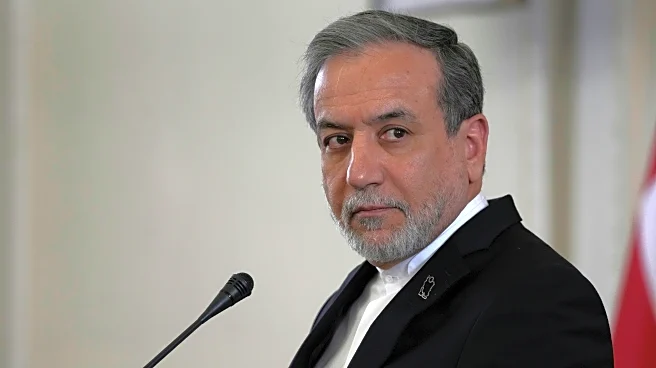What's Happening?
Belgium has stalled a European Union plan to issue a €140 billion loan to Ukraine, using immobilized Russian Central Bank assets. Belgian Prime Minister Bart De Wever demanded full mutualization of financial
risks and airtight guarantees from all EU member states. Concerns include potential Russian retaliation if Moscow demands its assets back. The EU summit ended without resolving these issues, with Hungary outright rejecting the initiative. The plan involves using cash balances from Russian assets held at Euroclear to fund the loan, which Ukraine would repay only after Russia compensates for war damages. The EU Commission is tasked with presenting options to meet Ukraine's financial needs for 2026 and 2027.
Why It's Important?
The delay in approving the loan underscores the complexities of international financial aid and the geopolitical tensions surrounding the Russia-Ukraine conflict. Belgium's resistance highlights the challenges of achieving consensus within the EU on financial and security matters. The loan is crucial for Ukraine, especially after the U.S. cut off assistance, leaving the country in financial distress. The EU's ability to navigate these challenges will impact its credibility and effectiveness in supporting Ukraine. The situation also reflects broader concerns about the use of frozen assets and the potential for international legal disputes.
What's Next?
The EU Commission will work on developing a detailed proposal to address the concerns raised by Belgium and other member states. A final decision is expected at the next EU summit in December. The outcome will depend on the ability to secure guarantees and possibly involve other G7 allies. The EU's approach to this issue could influence future international financial aid strategies and the handling of frozen assets. The pressure is on EU leaders to find a reliable funding source for Ukraine, with potential implications for EU-Russia relations and the broader geopolitical landscape.










